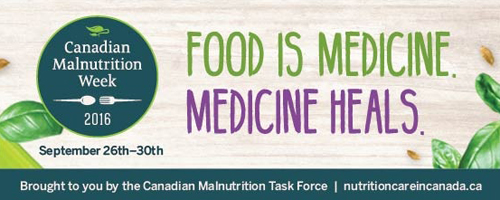
Mark Gill received the gift of life when he had a double lung transplant in April 2016. While this marked the turning point for his lung disease, he was still struggling with another issue – malnutrition.
Malnutrition is a deficiency of energy, protein and other nutrients that leads to changes in a person's weight, functional ability and overall health. In hospitals, malnutrition is often complicated by infections and diseases that cause inflammation, which make it more challenging to correct. Malnutrition can also be caused by an excess or imbalance of nutrients.
Mark recalls gradually losing weight down to a low point of 96 pounds, a result of his progressing lung disease and low food intake. With no appetite, he says eating felt like a job to him. After having only a quarter of his meal, he would either feel too tired or too full, and would stop eating. This both scared him and made it difficult for him to participate in his exercise program.
"I didn't have energy to get up and go down there, never mind get on a treadmill or bike."
Today, thanks to efforts to address malnutrition at the University Health Network (UHN), Mark is back up to a healthy weight of 163 pounds. He says he's now, "eating like a horse."
Why is Malnutrition a relevant issue?
The Canadian Malnutrition Task Force (CMTF) recently published a pan-Canadian study that included UHN. The study revealed that 45 per cent of hospitalized patients are malnourished at admission.
While malnutrition is considered preventable and treatable, it is often not recognized in hospitalized patients, resulting in many of those in need not receiving timely intervention.
Dr. Johane Allard, director of the nutrition support program at UHN and co-chair of the CMTF, adds that being left in a poor position for eating and missing meals for tests are other barriers to intake identified in CMTF satisfaction surveys.
Brenda Williams, a Registered Dietitian on the Orthopaedic unit at Toronto Western Hospital (TWH), wanted to help change this. As part of her recent CAP Fellowship, she worked on implementing a nutrition screening process to improve nutrition care for hip fracture patients – a group at high risk for malnutrition.
Due to efforts to address malnutrition in patients, Mark slowly regained his weight and health. He highlights the encouragement he received from nurses as an important factor in getting him to eat a bit more even when he didn't want to, and in helping him gain his strength back. Offering to re-heat meals or bring him snacks were simple gestures by UHN staff that he appreciated and credits for this improvement.
Mark says that some small changes with how hospital food is served could have a positive impact on patients.
What opportunities exist to better address malnutrition in Canadian hospitals including UHN?
The establishment of Canadian Malnutrition Week by the CMTF has been a valuable step in the national malnutrition awareness movement. Currently, most units at UHN do not systematically screen and monitor patients for malnutrition.
The UHN Malnutrition Task Force, a multidisciplinary committee, is hoping to help change this. One of the key goals of the committee is to implement UHN-wide use of a validated nutrition screening tool to identify those at risk of malnutrition and require a nutrition assessment by the dietitian. This system would be similar to the one currently in use on Brenda's orthopaedic unit.
The speech language pathologist on the orthopaedic unit at TWH also runs a mealtime assistance program (MAP) where volunteers help patients open packages, set up their meal trays and keep them company while they eat. Use of a MAP on more units is another opportunity to better address some of the small hurdles that keep patients from eating and helps communicate that 'food is medicine.'
Dr. Allard notes that the CMTF is in talks with Accreditation Canada to have screening and treatment of malnutrition become a required organizational practice across Canada. She adds that everybody can play a role in improving how malnutrition is detected and treated.
September 26-30, 2016 is Canadian Malnutrition Week. Please click here for a link to the schedule of activities planned across UHN sites. Go to
www.nutritioncareincanada.ca for more information on this important cause.
